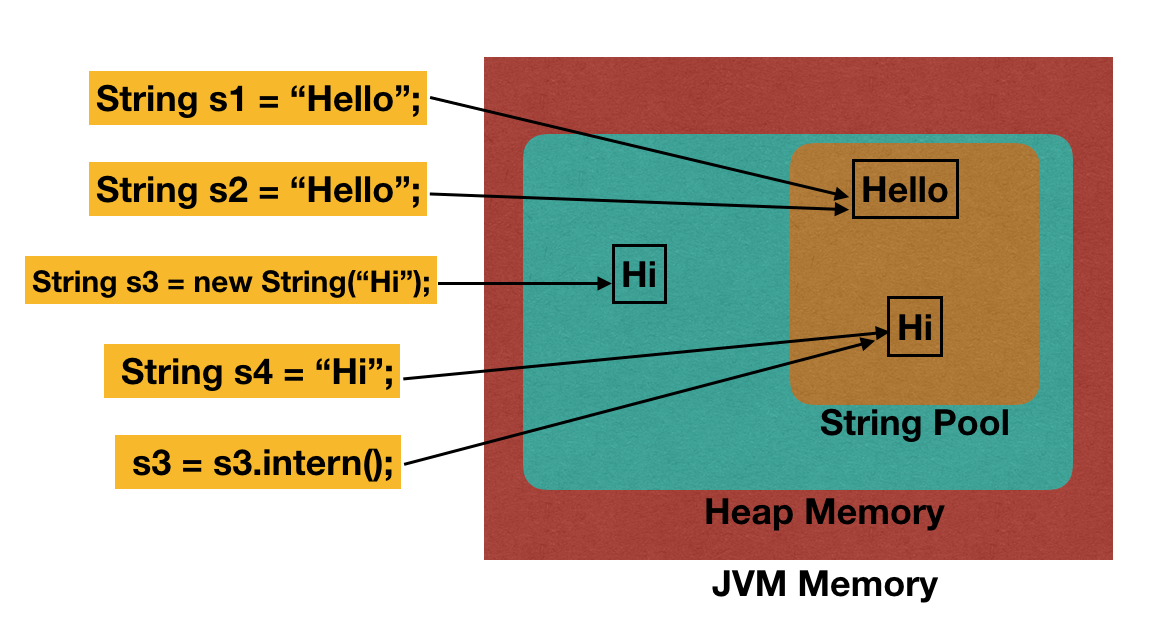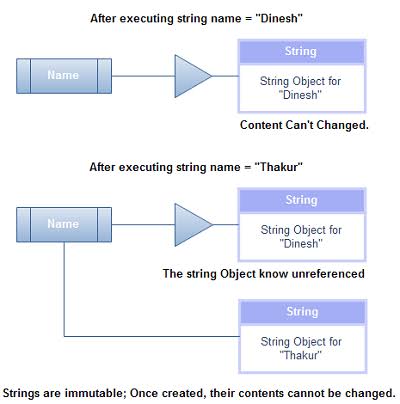Why Are Strings Immutable in Java? Insights into Memory Efficiency
Why Are Strings Immutable in Java? Insights into Memory Efficiency
Blog Article
Unalterable Strings: A Key Part in Ensuring Data Consistency and Dependability
In the realm of information monitoring, the importance of immutable strings can not be overemphasized. These unchanging sequences of characters play an essential role in upholding the honesty and accuracy of info within systems. By maintaining a state of immutability, information consistency is guaranteed, promoting a foundation of integrity upon which vital procedures depend. The principle of immutable strings goes beyond simple formality; it is a cornerstone in the facility web of information administration. As we explore the advantages, application techniques, and functional applications of unalterable strings, a more clear image arises of their crucial nature in safeguarding the electronic landscape.
The Idea of Unalterable Strings
Immutable strings, an essential principle in programs, refer to strings that can not be customized when they are developed. Basically, as soon as a string value is appointed, any type of operation that appears to change the string actually develops a brand-new string. This immutability makes certain information uniformity and reliability in applications, as it protects against unforeseen changes to the initial data.
Advantages in Data Consistency

Information consistency is critical in various aspects of software application development, consisting of database administration, multi-threaded atmospheres, and dispersed systems (Why are strings immutable in Java?). Immutable strings contribute significantly to attaining this consistency by preventing information corruption due to concurrent access. In circumstances where several processes or strings interact with the same data at the same time, immutable strings serve as a protect versus race problems and synchronization issues
In addition, the immutability of strings simplifies debugging and testing processes. With immutable strings, designers can trust that once a string is established, it will stay unchanged, making it simpler to map the source of mistakes and guaranteeing that examination instances generate constant outcomes. This integrity in information dealing with inevitably causes much more durable and secure applications.

Executing Unalterable Strings
Ensuring the immutability of strings calls for a thoughtful technique to their application in software program growth. One key approach is to make string courses in a manner that avoids adjustments once a string things is produced. By making strings immutable, developers can improve information uniformity and reliability in their applications.
To carry out unalterable strings properly, developers must favor developing new string items instead than customizing existing ones. This method makes certain that once a string is assigned a value, it can not be altered. In addition, any kind of operation that shows up to customize the string should develop a brand-new string with the desired adjustments as opposed to altering the initial.
Additionally, utilizing unalterable strings can streamline concurrency administration in multi-threaded settings. Since immutable strings can not be changed after development, they can be securely shared among multiple threads without the risk of information corruption.
Function in Reliability Assurance
In software program growth, the usage of unalterable strings plays an essential duty in ensuring the integrity of data procedures. Immutable strings, as soon as developed, can not be Visit Website customized, guaranteeing that the information they stand for continues to be constant throughout the application's implementation. This immutability property offers a degree of assurance that the data being refined will certainly not be inadvertently changed, bring about unexpected results or errors in the system.
By including unalterable strings into software program style, developers can enhance the integrity of their applications by reducing the risks related to mutable information - Why are strings immutable in Java?. Immutable strings assist in stopping data corruption or unplanned alterations, which can be particularly important when taking care of delicate details or when data integrity is vital
In addition, using unalterable strings streamlines concurrent handling, as numerous strings can safely gain access to and share string data without the threat of one string modifying the web content while an additional is reviewing linked here it. This element adds dramatically to the total dependability of the software application system, making sure foreseeable and regular behavior in data taking care of procedures.
Applications and System Integration
The smooth combination of unalterable strings right into different applications and systems is critical for ensuring robust information uniformity and dependability throughout diverse technological atmospheres - Why are strings immutable in Java?. Unalterable strings play an important duty in enhancing the honesty of data exchanges and interactions within complex software environments. By including immutable strings right into applications, programmers can alleviate the dangers associated with information tampering, unauthorized modifications, and inadvertent modifications, consequently fortifying the total safety posture of the system
In the context of system assimilation, immutable strings serve as a fundamental component for developing safe and secure interaction channels and promoting seamless information transfers in between different components. Their immutable nature ensures that information transferred between systems continues to be proven and unmodified, minimizing the likelihood of variances or mistakes that could compromise the integrity of the entire system. Moreover, unalterable strings can improve interoperability between diverse systems by providing a standardized format for information representation, making it possible for a lot more reliable data handling and exchange procedures throughout interconnected systems. By embracing unalterable strings in applications and system combination processes, companies can strengthen their information infrastructure and maintain the integrity and uniformity of their info assets.
Conclusion
In verdict, immutable strings play a critical role in maintaining information consistency and integrity in numerous applications and system integrations. By making sure that strings can not be transformed as soon as developed, the integrity of data is protected, reducing the threat of incongruities and mistakes. Executing immutable strings can considerably boost the dependability of systems, ultimately bring about more exact see page and reliable data processing.

Report this page